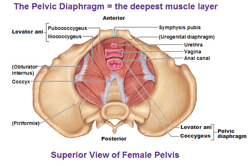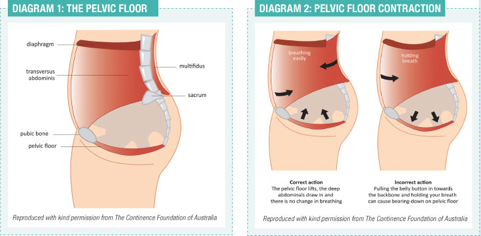Do you Suffer from leakage when you exercise? You are not alone!
Written by previous clinic Physio, Ashlee Insch
 Do you know there are Different types of continence:
Do you know there are Different types of continence:
- Stress incontinence
- Urge incontinence
- Functional incontinence
- Nocturnal incontinence
How common is Urinary Incontinence?
- Urinary incontinence affects up to 13% of Australian men and up to 37% of Australian women (Continence Foundation of Australia)
- Up to 70% of people with urine leakage do not seek treatment or advice
- 37.4% of women in their first pregnancies report stress incontinence
Did you also know that Incontinence is also one of the most common, but least reported conditions affecting Women in Sport- particularly high impact sports like Rugby League and Rugby Union? You are not alone!
What is stress incontinence?
Stress incontinence is described as leaking of small amounts of urine when there is an increase in pressure in the abdomen that pushes on the bladder. It is most common in women however there are cases in men (particularly after prostate surgery). It often occurs with running, jumping, coughing or sneezing.
Incontinence in women is typically caused by pregnancy, childbirth and menopause. During pregnancy and childbirth, the pelvic floor muscles are stretched and become weaker which subsequently reduces the support around the urethra.
During menopause the female hormone oestrogen is produced in lower quantities which affects the body’s ability to seal when using the bathroom.
Who’s at risk?
- During pregnancy (both pre and post-natal)
- During menopause
- Obese individuals
- Regular constipation
- Post gynecological surgeries (ie. hysterectomy)
- Some neurological conditions
What is my pelvic floor?
Pelvic floor muscles are the layer of muscles that support our pelvic organs and line the inside of the pelvis. If we have weaker pelvic floor muscles, we are more at risk of not controlling the release of urine, wind or faeces. Pelvic floor specific exercises are designed to help strengthen and therefore increase the support of the pelvic organs (preventing prolapse and incontinence).
These muscles stretch from the tailbone to the pubic bones at the front of the pelvis and are typically thick and very strong. Our pelvic floor muscles work with our back stabilizer muscles and therefore are a very common rehab exercises prescribed by many physios with those suffering from low back pain.
The pelvic floor muscles act like a trampoline that is able to move up and down to allow urinating, a support system when we change the pressure within our stomachs.

Prevention
A few easy things to do to prevent Stress Incontinence are:
- Drink plenty of water (ideally we should be drinking 30ml of water per kilogram of body weight)
- Eat a healthy diet
- Lead a healthy lifestyle (stop smoking, maintain healthy body weight)
- Engage in an active lifestyle
- Practice good toilet habits
- Find a good Physio Pilates/Exercise program and communicate with your Physio about your leakage. We can’t help you if we don’t know!
Physio Pilates should incorporate improving your awareness of how to ‘find’ a contraction of your pelvic floor muscles and then progress the muscular endurance capacity of this group of muscles. A gentle exercise program under good guidance will be progressed appropriately so it does start very gentle and then gradually progress so it incorporates pelvic floor contractions with other movements of limbs and trunks and then eventually to harder or heavier movement patterns.
- -Use of Real-time Ultrasound (RTUS) can assist you to learn how to contract your Pelvic Floor Muscles correctly and with enough strength. Gold Coast Physio & Sports Health has a RTUS and can assist you with this process
- -Seek help from a Womens Health Physio if symptoms are severe, regular or not improving with directed exercise that seems appropriate, or speak to your GP about your concerns. Our Team can recommend the best womens health Physio’s around if you are a complex case.
Definitely do not stick your head in the sand and pretend your leakage does not exist. Stress Incontinence can be helped, and usually very easily!
Call us for Physiotherapy Burleigh or Ashmore Gold Coast Physio & Sports Health on 07 55006470 or Join our VIP’s Facebook Group to Ask Questions online.
